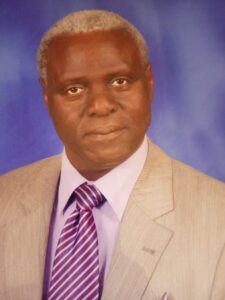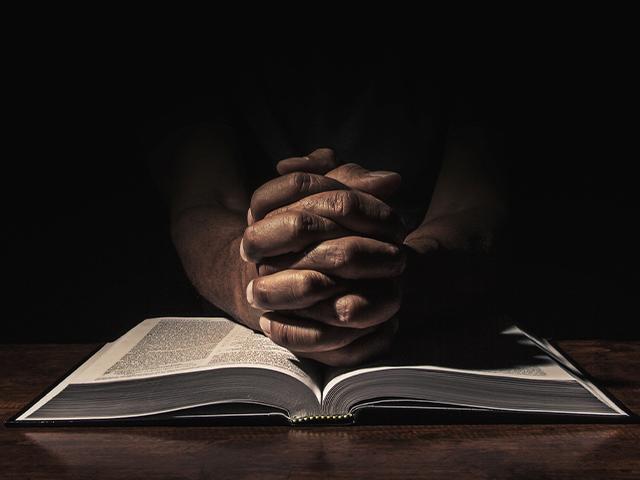As we live in this life, we need to be informed that the life we live does not have to be complicated. Many Christians, however, have rebelled against simple Christian living because they are culturally enslaved to the materialistic mind and impetus for gain. Many have sought to promote and practice complex life-styles instead of living simple life-styles.
Imagine a traveling evangelist today trying to live by Christ’s command to His disciples in Luke 9:3: “Take nothing for your journey, no staff, no bag, nor bread, nor money; and do not have two tunics“. Nobody ever traveled lighter than this, for this was the simplest life-style. The Kingdom of God which we preach is marked by simplicity, urgency, and sincerity.
The disciples were instructed to take nothing for the journey. They did not need sophisticated equipment to preach a simple message of Christ’s kingdom. Simplicity is the virtue that makes us like God in disposition and be available to every person. Faith in Christ is not always easy, but simple.
The value of simplicity of life is in the fact that it gives us freedom. We should know that simplicity is freedom from subtlety. It is freedom from artificial ornament, or demands of pretentious life-styles. It is freedom from cunning or duplicity. Indeed, pride is so subtle. Pride is the sin most likely to keep you from crying out to Christ your Saviour in humility and reverence of His name. Those who think that they are well will not look for a doctor.
We should know that as seriously dangerous as pride is, it is equally hard to spot. When it comes to diagnosing our hearts, those of us who have the disease of pride have a challenging time identifying our sickness. Pride infects our eyesight, causing us to view ourselves through a lens that colours and distorts reality. Pride will paint even our ugliness in sin as beautiful and commendable.
Symptoms of the infection of pride are:
1. Fault-finding: While pride causes us to filter out the evil we see in ourselves, it also causes us to filter out God’s goodness in others. We sift them, letting only their faults fall into our perception of them.
2. A harsh spirit: Those who have the sickness of pride in their hearts speak of others’ sins with contempt, irritation, frustration, or judgment. Pride is crouching inside our belittling of the struggles of others. It is cowering in our jokes about the ‘craziness’ of our spouse.
3. Superficiality: When pride lives in our hearts, we are far more concerned with others’ perceptions of us than the reality of our hearts. We fight the sins that have an impact on how others view us, and make peace with the ones that no one sees. We have great success in the areas of holiness that have highly visible accountability, but little concern for the disciplines that happen in secret.
4. Defensiveness: Those who stand in the strength of Christ’s righteousness alone find a confident hiding place from the attacks of men and Satan alike. True humility is not knocked off balance and thrown into a defensive posture by challenge or rebuke, but instead continues in doing good, entrusting the soul to our faithful Creator. For the humble Christian, the more the world is against him or her, the more silent and still he or she will be, unless it is in his or her prayer closet, and there he or she will not be still.
5. Presumption: It is possible to be presumptuous before God. Humility approaches God with humble assurance in Christ Jesus. If either the “humble” or the “assurance” are missing in that equation, our hearts very well might be infected with pride. Some of us have no shortage of boldness before God, but if we are not careful, we can forget that He is God. Some, in their great rejoicing before God, have not paid sufficient regard to that rule in Psalm 2:11 which says: “Worship the Lord with reverence, and rejoice with trembling“. Others of us feel no confidence before God. Which sounds like humility, but in reality it is another symptom of pride. In those moments, we are testifying that we believe our sins are greater than His grace. We doubt the power of Christ’s blood and we are stuck staring at ourselves instead of Christ.
6. Desperation for attention: Pride is hungry for attention, respect, and worship in all its forms. Maybe it sounds like shameless boasting about ourselves. Maybe it is being unable to say “no” to anyone because we need to be needed. Maybe it looks like obsessively thirsting for marriage or fantasizing about a better marriage because one is hungry to be adored. Maybe it looks like being haunted by your desire for the right car or the right house or the right title at work, all because you seek the glory that comes from men, not God.
7. Neglecting others: Pride prefers some people over others. It honours those who the world deems worthy of honour, giving more weight to their words, their wants, and their needs. There is a thrill that goes through me when people with “power” acknowledge me. We consciously or unconsciously pass over the weak, the inconvenient, and the unattractive, because they do not seem to offer us much. Maybe more of us struggle with pride than we thought. There is good news for the prideful. Confession of pride signals the beginning of the end for pride.
We should know that Just as our concealed pride can move us toward death, so the acknowledgement of our own pride moves us toward life by causing us to cling more fiercely to the righteousness of Christ.
Psalm 139:23-24 says: “Search me, O God, and know my heart! Try me and know my thoughts! And see if there be any grievous way in me, and lead me in the way everlasting!”
Here in Scripture, although King David despised the wicked who spoke against God and took His name in vain, he realized he was not perfect. He was keenly aware that sin might be lurking in his heart and mind. Therefore, he asked the Lord to search his heart and know his thoughts. David asked the Lord to see if any grievous way was in his heart or mind. “Grievous” here means something which causes pain or sorrow. This is the kind of pain that results from being afflicted because of sin. David wanted his conscience to be free of pain, and of any sense of offending God. We need to realize that sin has natural, negative consequences in our lives.








